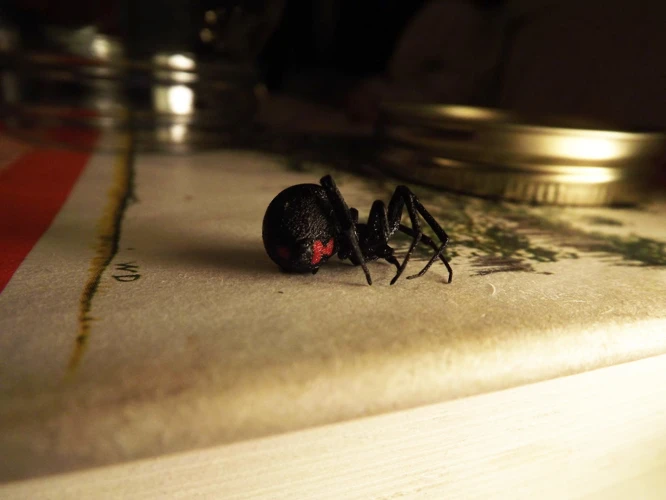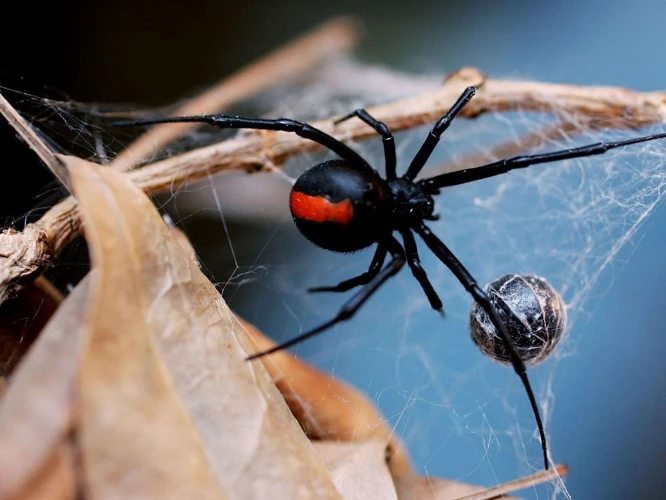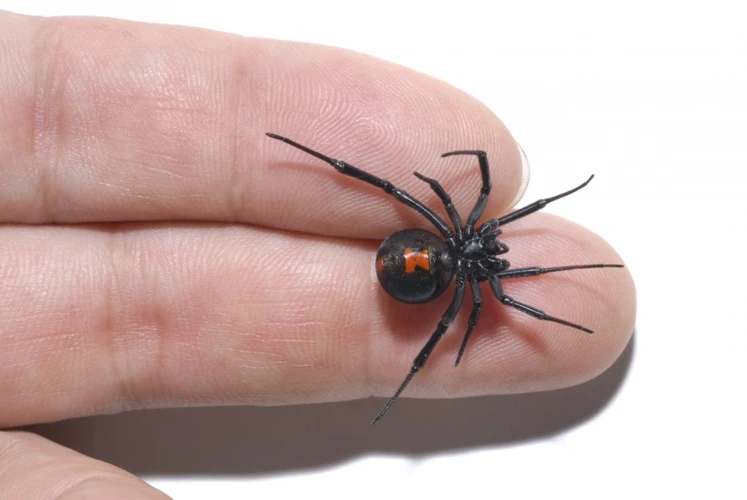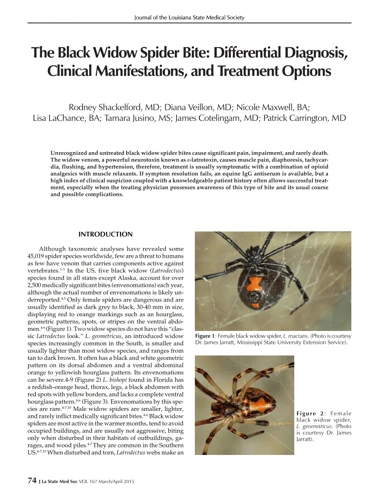The thought of being bitten by a black widow spider can be terrifying. These highly venomous spiders can cause serious harm to humans, especially if left untreated. However, there is a way to counteract the toxicity of their venom – with the help of black widow spider antivenom. But what exactly is this antivenom and how does it work? In this article, we will dive into the details of understanding black widow spider antivenom, from how it is made to how it is administered. We’ll also cover the signs and symptoms of a black widow spider bite, who should receive antivenom, and what to do in case of a bite. So if you’ve ever been curious about how antivenom can help combat the venom of a black widow spider, keep reading.
What is Black Widow Spider Antivenom?

You may be familiar with the infamous black widow spider, known for its venomous bites that can cause severe pain and muscle spasms. But did you know that there is a solution in the form of black widow spider antivenom? This life-saving treatment is specifically designed to counteract the effects of the black widow spider’s venom. In this section, we’ll delve into the creation and function of antivenom, so you can better understand how it can help in the case of a black widow spider bite. If you’re interested in learning more about preventing black widow spider bites, check out our article on avoiding black widow spider bites.
How is Antivenom Made?
Antivenom is made by injecting a small amount of the venom into the bloodstream of an animal, usually a horse. As the animal’s immune system produces antibodies to the venom, these antibodies are collected and purified to produce the antivenom. The process can take several months and requires the venom from many spiders. The resulting antivenom can then be used to help humans who have been bitten by a black widow spider.
The process of creating antivenom involves the following steps:
- Spider collection: Black widow spiders are collected from the wild. This can be dangerous since the spiders are venomous and can bite humans.
- Milking the spiders: The spiders are “milked” for their venom by lightly pressing a glass slide against their fangs so that the venom flows onto the slide.
- Injecting the venom into animals: The venom is injected into horses in small doses over a period of weeks to months. As the horses mount an immune response to the venom, they produce antibodies that can neutralize the venom.
- Collecting the antivenom: The horse’s blood is collected and the antibodies are separated out and purified to produce the antivenom.
- Testing: Once the antivenom is produced, it must be rigorously tested for safety and effectiveness. This includes tests on animals to ensure that the antivenom does not cause any harmful side effects.
Knowing how antivenom is made can help alleviate some of the perplexity surrounding the treatment. However, it is crucial to remember that antivenom is only one part of the treatment process for a black widow spider bite. For more information on how to recover from a black widow spider bite, please visit our article on Black Widow Spider Bite Recovery.
How Does Antivenom Work?
Antivenom for black widow spider bites works by recognizing and binding to the specific venom molecules that are responsible for causing harm in the body. This binding process neutralizes the venom and prevents it from causing further damage. The antivenom is made by first injecting a small amount of black widow venom into an animal, such as a horse or sheep. The animal’s body produces antibodies in response to the venom, which are then collected and purified to create the antivenom.
Antibodies vs. Venom
The antibodies contained in the antivenom are specifically designed to recognize and neutralize the toxic chemical components of black widow spider venom. When the antivenom is introduced into the body, the antibodies immediately begin searching for and binding to the venom molecules. This binding process makes the venom molecules inactive, effectively stopping their harmful effects.
Time is of the Essence
Antivenom is most effective if it’s administered soon after a black widow spider bite. The longer you wait to receive treatment, the more time the venom has to cause damage in your body. In severe cases, waiting too long to receive antivenom treatment could even be fatal.
Not a Cure-all
While antivenom is an important tool in the treatment of black widow spider bites, it’s not a cure-all. It doesn’t completely reverse the effects of the venom, nor does it prevent all side effects from occurring. In some cases, patients may need additional treatment, such as pain medication or muscle relaxants, to manage symptoms.
Link: If you want to learn more about symptoms and treatment of black widow spider bites, visit our Symptoms and Treatment of Black Widow Spider Bites page.
When is Black Widow Spider Antivenom Used?

With their venom containing a neurotoxin, black widow spider bites can result in serious health consequences. In some cases, receiving black widow spider antivenom can be vital in treating the bite. Antivenom is a crucial weapon against black widow venom and can help prevent severe side effects from the bite. In this article, we will take a closer look at when antivenom is used, who should receive it, and how it is administered. It’s important to note that seeking medical attention for a black widow spider bite is crucial, so if you haven’t already, make sure to check out our article on when to seek medical help after a bite.
Symptoms of Black Widow Spider Bite
Black Widow spider bites can produce a wide range of symptoms depending on the amount of venom injected and the individual’s sensitivity to the venom. Here are some of the most common symptoms of a Black Widow spider bite:
- Localized pain: Most often, the pain at the bite site is the first symptom of a Black Widow spider bite. The pain can be severe and can spread to other parts of the body such as the chest, abdomen, and back.
- Abdominal cramps: Black Widow spider venom can cause severe abdominal cramps, which can be mistaken for appendicitis or other abdominal emergencies.
- Sweating: The bite can cause excessive sweating, particularly in the area around the bite site.
- Muscle spasms: Black Widow spider venom can cause muscle spasms, particularly in the abdominal muscles. The spasms can be so severe that the person may double over in pain.
- Nausea and vomiting: The venom can cause nausea and/or vomiting, which can be particularly problematic in children or elderly individuals.
- Headaches: Black Widow spider bites can cause headaches, which can be severe and last for several days.
- High blood pressure and/or fast heart rate: In rare cases, Black Widow spider bites can cause an increase in blood pressure or rapid heart rate.
It’s essential to note that not all individuals will experience all of these symptoms, and some may experience only a few. In rare cases, some people may not have any symptoms at all. If you or someone you know may have been bitten by a Black Widow spider and are experiencing any of the above symptoms, it’s crucial to seek medical attention immediately.
For steps you should take in case of a Black Widow spider bite, you can read our article “Black Widow Spider Bite Steps”. Additionally, learn more about pain management options for Black Widow spider bites in our article “Black Widow Spider Bite Pain Management”.
Who Should Receive Antivenom?
Antivenom is reserved for individuals who have been bitten by a black widow spider and are experiencing severe symptoms. According to researchers, those who are at high risk for severe symptoms include children, elderly individuals, and people who are in poor health. Additionally, individuals who have a history of allergies or who have had severe reactions to antivenom in the past may not be good candidates for treatment with antivenom. Pregnant women may also be at high risk for complications and may require antivenom if they are bitten by a black widow spider.
It is important to note that not all black widow spider bites require antivenom. If a person is bitten by a black widow spider and experiences mild symptoms, such as local pain, swelling, or redness, they may not need antivenom treatment. Instead, they can use home care remedies or over-the-counter pain relievers to manage their symptoms.
If a person is bitten and experiences severe symptoms, such as muscle cramps, spasms, and abdominal pain, they should seek medical attention immediately. A healthcare professional will evaluate the severity of the bite and determine if antivenom is needed. In some cases, additional treatments may be required to manage the symptoms of the bite.
For more information on black widow spider bites, visit our article “Understanding Black Widow Spider Bites”. Additionally, emerging treatments for black widow spider bites may provide promising alternatives to antivenom. Learn more in our article “Emerging Treatments for Black Widow Spider Bites”.
How is Black Widow Spider Antivenom Administered?

After understanding how the black widow spider antivenom is made and how it works, the next step is to explore the various methods of administering the antivenom. Administering the antivenom is a crucial step in treating black widow spider bites as it can quickly neutralize the harmful effects of the spider’s venom. In this section, we will discuss the different ways in which the antivenom is administered, the recommended dosage, and potential side effects of the treatment. Additionally, we will provide some important information on first aid measures and medical assistance that can be taken before administering antivenom.
How Much Antivenom is Given?
Determining the appropriate amount of antivenom needed for a black widow spider bite depends on the severity of the symptoms and the patient’s overall health. The standard dose of antivenom for adults is usually one to two vials, while children may require a smaller dose. However, the amount administered may vary depending on the patient’s weight, age, and medical condition.
Here is a table that shows the recommended antivenom dosages for black widow spider bites:
| Patient Age | Antivenom Dosage |
|---|---|
| Adults | 1-2 vials |
| Children 2-12 years old | 0.5 vials |
| Children under 2 years old | 0.25 vials |
It is important to note that the dosage of antivenom should not be based solely on the number of bites or the amount of venom injected. Instead, the amount administered should be based on the overall severity of symptoms, which can range from mild to life-threatening.
It’s always best to consult with a medical professional in case of a black widow spider bite. They can determine the appropriate amount of antivenom needed for treatment. In case of severe symptoms or allergic reactions to antivenom, the patient may need other forms of medical attention.
Pro Compress is a commercial antivenom medication that can provide rapid relief from black widow spider bite symptoms. This medication is administered through an intravenous infusion and is used to manage moderate to severe symptoms.
If you or someone you know is experiencing a black widow spider bite, seek medical attention immediately. In the meantime, use the recommended first aid measures to minimize the spread of venom and relieve discomfort until medical help arrives.
Types of Antivenom Administration
Antivenom is the primary treatment for black widow spider bites, and there are two primary methods for administering it: intravenous and intramuscular. The choice of how to administer antivenom depends on the severity of symptoms and the patient’s ability to receive the medication.
Intravenous Administration
Intravenous (IV) administration is the preferred method for treating severe cases of black widow spider bites. The antivenom is delivered directly into the patient’s bloodstream through a vein, allowing it to take effect quickly. This method is especially useful for patients who are experiencing severe muscle cramps, difficulty breathing, or chest pain.
Intramuscular Administration
Intramuscular (IM) administration is often used for less severe cases of black widow spider bites. The antivenom is injected deep into the patient’s muscle, where it is absorbed into the bloodstream over time. This method is less efficient than IV administration, but it is still effective for patients who cannot receive IV treatment.
Comparison of IV and IM Administration
| Intravenous Administration | Intramuscular Administration | |
|---|---|---|
| Method of Administration | Directly into the patient’s bloodstream through a vein | Injected deep into the patient’s muscle |
| Speed of Delivery | Quick | Slower |
| Efficiency | Highly efficient | Less efficient than IV administration |
| Use for Severe Cases | Preferred method | Not the preferred method, but still effective |
| Use for Less Severe Cases | Not necessary | Preferred method |
It is important to note that antivenom is a highly specialized medication that should only be administered by trained healthcare professionals. If you or someone you know has been bitten by a black widow spider, seek medical attention immediately. Prompt treatment with antivenom can help to prevent complications and speed up recovery.
Side Effects of Black Widow Spider Antivenom

Side Effects of Black Widow Spider Antivenom:
Although antivenom is a life-saving solution for those who are bitten by black widow spiders, it is not free from side effects. The potential side effects of black widow spider antivenom are rare, but they can occur. Some of the common side effects of antivenom include itching, rash, fever, nausea, and vomiting.
There are possibilities of some severe side effects such as difficulty breathing, chest pain, fast or slow heartbeat, and severe allergic reactions. Some people may also experience muscle pain, joint pain, swollen glands, or hives after receiving antivenom.
It is essential to note that the side effects of antivenom are exceptionally rare and usually go away on their own within a few hours. However, if you experience any severe side effects after receiving antivenom, it’s best to consult with a doctor right away.
If you receive antivenom, your healthcare provider will monitor you closely to ensure that you don’t experience any adverse reactions. They may administer additional medications to treat the side effects if necessary.
It is also essential to let your healthcare provider know if you have any known allergies or adverse reactions to medications. It will help them to take appropriate precautions to avoid any complications after antivenom administration.
Pro Tips:
Those who are administered antivenom may experience side effects. Nevertheless, the benefits of the antivenom far outweigh the possible side effects. If you experience any severe or unusual reactions after antivenom administration, consult with a doctor right away.
If you experience a black widow spider bite, place a cold compress on the affected area as quickly as possible to reduce swelling and pain. Seek medical attention immediately. It’s essential to know that the administration of antivenom is reserved for severe or life-threatening symptoms. Not all black widow spider bites require antivenom administration.
It’s always best to be cautious around black widows and to take appropriate measures like wearing gloves and boots when gardening or cleaning garages/sheds. If you encounter a black widow spider and are not comfortable dealing with it, call pest control to come and remove it safely.
What Should You Do in Case of a Black Widow Spider Bite?
The thought of getting bitten by a black widow spider can be unsettling. If you suspect that you have been bitten by one, prompt medical attention is necessary. Here are the steps you should take to handle the situation in case of a black widow spider bite. It is important to act fast to avoid complications. Keep in mind that you should always seek medical advice even if you don’t think the bite is serious.
First Aid
In case of a black widow spider bite, it’s important to take action immediately. Here are the steps to follow for proper first aid:
- Remove the source of the bite: If the spider is still attached to the skin, carefully remove it using a pair of tweezers.
- Wash the bite area: Use soap and water to clean the wound site. This helps to prevent any bacteria from entering the wound.
- Apply a cold compress: Apply a cold compress to the bite site to reduce pain and swelling. You can use a cold pack, a bag of ice, or a damp cloth.
- Take pain medication: Over-the-counter pain medication, such as ibuprofen and acetaminophen, can help to relieve pain and reduce fever. However, avoid aspirin as it can increase the risk of bleeding.
- Rest and elevate the affected limb: If the bite is on a limb, rest and elevate it to reduce swelling.
- Monitor for symptoms: Keep an eye on any symptoms that may appear after the bite. See below for symptoms to look out for.
Remember that first aid should be performed as soon as possible after the bite. If you experience any severe symptoms, seek medical attention immediately.
If you want to learn more about how to properly administer first aid for a black widow spider bite, check out our pro compress black widow bite or PT black widow bite resources.
When to Seek Medical Help
When experiencing a black widow spider bite, it is important to know when to seek medical help. Not all spider bites require antivenom treatment, but it is better to be safe than sorry. Here are some scenarios in which seeking medical help should be a priority:
| Symptoms: | Action: |
|---|---|
| Bite on a child or pregnant woman | Seek medical attention immediately |
| Severe muscle pain, cramping, or spasms that spreads to other parts of the body | Seek medical attention immediately |
| Difficulty breathing, chest tightness, or heart palpitations | Seek emergency medical attention |
| Signs of severe allergic reaction, such as swelling of the face or throat, or difficulty swallowing or talking | Seek emergency medical attention |
| Generalized rash, hives, itching, or swelling that occurs beyond the area of the bite | Seek medical attention within 24 hours |
| Severe headache, dizziness, tremors, or convulsions | Seek medical attention immediately |
Additionally, if symptoms do not improve or worsen after a few hours, seek medical attention. Remember, it’s always better to err on the side of caution when dealing with potentially dangerous spider bites like those from black widow spiders.
Conclusion
After reading this comprehensive guide on black widow spider antivenom, you should now have a better understanding of what it is, how it works, when it is used, how it is administered, and its potential side effects. Black widow spider bites can be very dangerous and potentially life-threatening, so it is important to seek medical help immediately if you suspect you have been bitten.
Remember, antivenom is not always necessary for all cases of black widow spider bites. It is typically reserved for severe cases where the victim is experiencing serious symptoms. If you have been bitten, make sure to clean the affected area and apply a cold compress to reduce swelling and pain.
Furthermore, it is important to take measures to prevent future bites from occurring. This includes wearing protective clothing when working or spending time in areas where black widow spiders are known to live, using insect repellent, and regularly inspecting your home and yard for spider nests.
Finally, if you have any concerns or questions about black widow spider antivenom or spider bites in general, talk to your healthcare provider or a specialist in spider bites. With the appropriate knowledge and safety precautions, you can reduce your risk of experiencing a dangerous encounter with these venomous spiders.
Frequently Asked Questions
What is the black widow spider and where is it found?
The black widow spider is a venomous spider with a distinctive red hourglass-shaped mark on its abdomen. It is found in North and South America, with the highest concentrations in the Southern United States and Mexico.
How dangerous is a black widow spider bite?
A black widow spider bite can be very dangerous, especially for children, the elderly, and those with weakened immune systems. The venom can cause severe muscle pain and cramps, nausea, vomiting, and other symptoms.
What should I do if I am bitten by a black widow spider?
If you suspect you have been bitten by a black widow spider, seek medical attention immediately. Apply a cold compress to the affected area and keep it elevated if possible.
What is antivenom and how does it work?
Antivenom is a treatment made from the antibodies of animals or humans that have been exposed to the venom of a particular species. It works by binding to the venom and neutralizing its effects.
Who needs to receive black widow spider antivenom?
Antivenom is typically reserved for those with severe symptoms, such as muscle cramps, severe pain, and difficulty breathing. Children, the elderly, and those with weakened immune systems are also more likely to need antivenom.
How is black widow spider antivenom administered?
Antivenom is administered via injection into a vein. In some cases, it may also be given directly into the muscle or under the skin.
What are the potential side effects of black widow spider antivenom?
Potential side effects of antivenom can include allergic reactions, fever, chills, and nausea.
Can black widow spider antivenom be given to pregnant women?
Antivenom can be given to pregnant women if the benefits outweigh the risks. However, this should be done under close medical supervision.
What other treatments are available for black widow spider bites?
In addition to antivenom, pain relievers and muscle relaxants may be given to help manage symptoms. It is also important to keep the affected area clean and elevated.
How can I prevent black widow spider bites?
To prevent black widow spider bites, avoid reaching into dark, enclosed spaces where spiders may be hiding, such as woodpiles and old boxes. Wear gloves when working in areas where black widow spiders are known to live.







